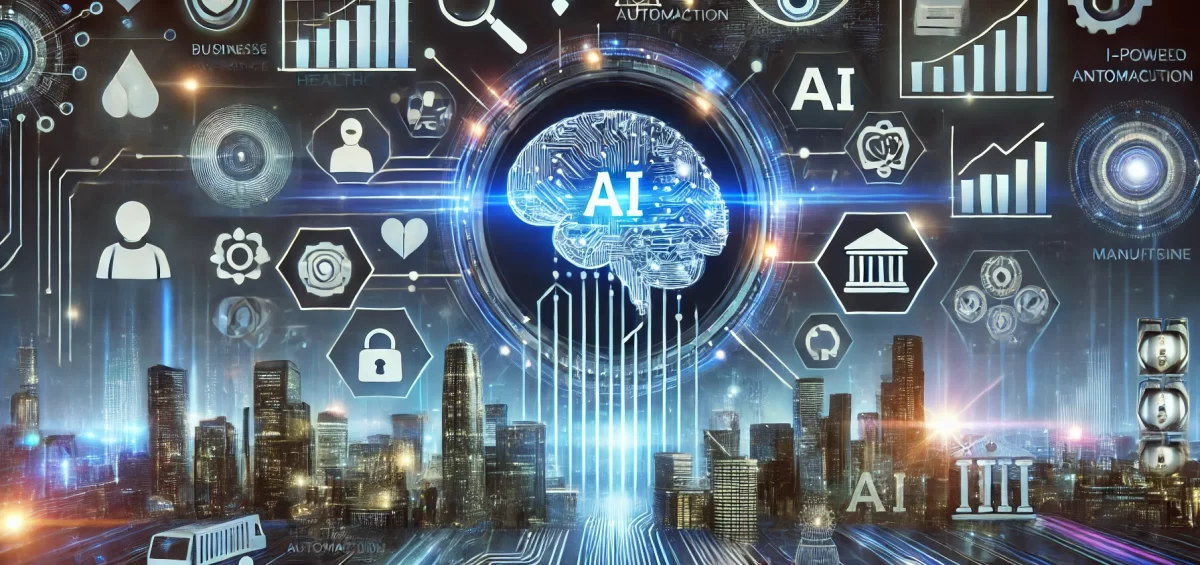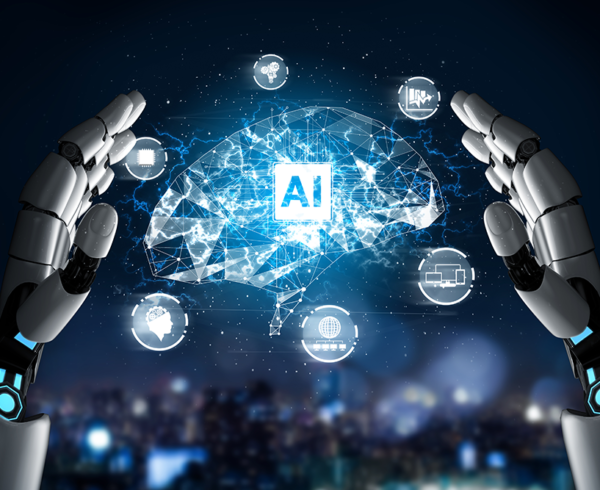Artificial Intelligence (AI) has transitioned from being a futuristic concept to a transformative force driving innovation across industries. Businesses worldwide are leveraging AI to streamline operations, enhance decision-making, and deliver superior customer experiences. In this blog post, we explore how AI-powered business solutions are reshaping industries and paving the way for a smarter future.
Revolutionizing Customer Experience
One of the most visible impacts of AI is in enhancing customer interactions. AI-driven chatbots and virtual assistants, such as ChatGPT, provide 24/7 support, resolving queries quickly and efficiently. Predictive analytics help businesses anticipate customer needs and personalize recommendations, fostering deeper engagement and loyalty. For example, e-commerce platforms use AI to offer tailored product suggestions, while banks deploy it to analyze spending patterns and provide personalized financial advice.
Streamlining Operations
AI excels in automating repetitive tasks, freeing up human resources for more strategic endeavors. In manufacturing, predictive maintenance powered by AI minimizes downtime by forecasting equipment failures before they occur. Supply chain management has also seen remarkable improvements, with AI optimizing routes, inventory levels, and delivery schedules. These efficiencies translate to significant cost savings and enhanced productivity.
Enhancing Decision-Making
The ability to analyze vast amounts of data in real-time is a game-changer for businesses. AI algorithms uncover patterns and insights that would be impossible for humans to detect, enabling data-driven decision-making. In finance, AI models assess credit risk, detect fraud, and guide investment strategies. In healthcare, AI supports diagnostic processes and recommends treatment plans, improving patient outcomes.
Driving Innovation in Product Development
AI is fueling innovation by enabling businesses to create smarter products. From self-driving cars to intelligent home devices, AI technologies are at the core of groundbreaking advancements. Companies are also using AI to simulate scenarios and optimize designs, reducing time-to-market for new products. This capability is particularly impactful in industries like pharmaceuticals, where AI accelerates drug discovery and development.
Transforming Marketing Strategies
Marketing has been revolutionized by AI, with tools that analyze consumer behavior and optimize campaigns for maximum impact. AI-powered platforms segment audiences, predict trends, and recommend content strategies. Social media algorithms use AI to determine the best times to post and the most effective formats, ensuring brands reach their target audience effectively.
Challenges and Ethical Considerations
Despite its immense potential, the widespread adoption of AI comes with challenges. Concerns about data privacy, algorithmic bias, and job displacement must be addressed to ensure equitable and responsible AI usage. Businesses must prioritize transparency and ethical practices while implementing AI solutions to build trust among stakeholders.
The Future of AI in Business
As AI continues to evolve, its applications in business will expand further. Emerging technologies like generative AI, edge computing, and quantum AI promise even greater possibilities. Companies that embrace AI strategically will not only gain a competitive edge but also contribute to shaping a more innovative and efficient world.
Conclusion
Artificial Intelligence is no longer a luxury but a necessity for businesses aiming to thrive in today’s competitive landscape. By integrating AI-powered solutions, organizations can unlock new levels of efficiency, creativity, and customer satisfaction. The industries being reshaped by AI are only the beginning—the future holds endless opportunities for those willing to innovate and adapt.






